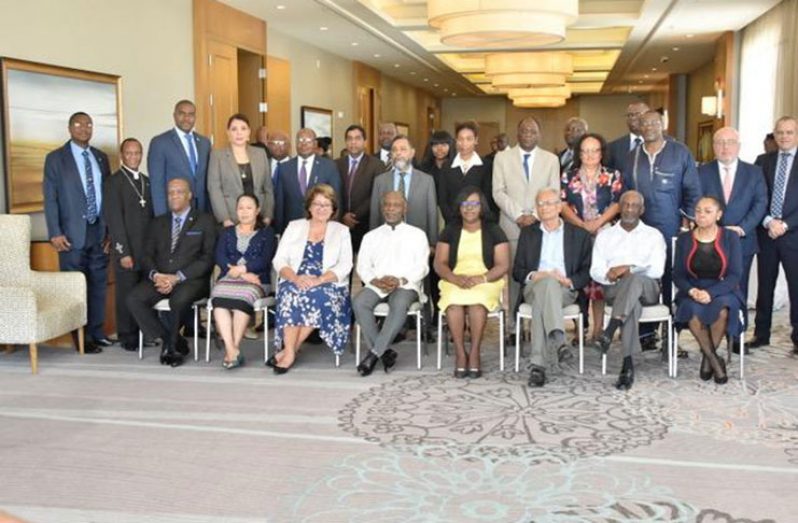– Public Service Minister tells CAPAM Ministers’ Forum
PUBLIC Service Minister, Dr. Rupert Roopnaraine, on Sunday said Guyana is primed and focused on building a roadmap to good governance.
The minister was at the time addressing government ministers from across the Commonwealth who gathered at the Marriott Hotel for a Ministers’ Forum prior to the opening of the 7th Biennial Commonwealth Association for Public Administration and Management (CAPAM) Conference today.
The forum saw participants discussing good, effective and efficient governance relative to their respective countries.
“This is the 7th such conference and the first to be held in Guyana…. The very nature of our portfolios and our nexus with CAPAM, have determined our focus over the years. We are in the business of providing the framework for the delivery of public services; fashioning the structure and procedures for the delivery of those services; and regulating the engagement of the manpower for the ultimate delivery of those services. In a sense, we are the kernel of public services delivery,” said Dr. Roopnaraine.
Themed ‘Goal to Action: Strengthening the Public Sector Governance for Efficient and Effective Implementation,’ the public service minister told participants that Guyana is eager to share its strategy for development within the framework of sustainability provided by the United Nations’ Sustainable Development Goals (SDGs).
“Guyana will take the opportunity to share with you its perspective as articulated in Guyana’s Green State Agenda, which, in fact, is the country’s development strategy. It should be recognised that it is governance-efficiency’s economical use of resources, and governance-effectiveness’ goal-driven use of resources that will be a major, if not the final determinant in sustainability. As [The ministers], the kernel of the administration and the management of our nation’s resources, [we] are well placed to contribute to the goal of sustainability,” the public service minister said.
Minister of State Joseph Harmon said the CAPAM conference meetings push all attendees to be innovative and learn from each other’s best practice.
“The Kaleidoscope of cultures, experiences, and diverse public service leadership experiences here from across our commonwealth of nations places us in a unique position to adopt innovative measures, take them forward, and see them through. [The] exchange [of] our experiences of best practices that, once adopted, could improve significantly, our ability to enhance public service efficiency and its effective delivery to all citizens in our respective countries,” said the minister of state.
Tasked with delivering the keynote address, Vice-President and Minister of Foreign Affairs, Carl Greenidge, urged members of the Commonwealth to set goals while governing as those goals attribute to global governance.
“There is a dimension that is often, I think, overlooked… The 17 Sustainable Development Goals that the 193 States adopted constitute a novel approach to global governance… that process itself, where goal-setting features as a key part of the strategy is, in effect, governance through goals… While the SDG’s hold great potential in the regard, the collective success will depend on a number of institutional factors, such as the extent to which states formalise their commitments, strengthen their related global governance arrangements, translate the global ambitions into national context, integrate sectoral policies and maintain flexibility in the governance mechanism,” said Minister Greenidge.
Meanwhile, Director of the Governance and Peace Directorate within the Commonwealth Secretariat, Katalaina Sapolu said a key characteristic of good governance is a government that is accountable to its citizens.
“The importance of governance in management of national development cannot be over-emphasised. Indeed, governance is about formation and stewardship of the formal and informal rules that regulate the public realm, including its political, economic and social dimensions. In this regard, there is need for robust regulations, clear minds of accountability, and the ability for all stakeholders, including the public to be involved in scrutinising the operations of public institutions and how they deliver services. Citizens should be able to hold service providers accountable,” she said. (Ministry of the Presidency)



.jpg)








